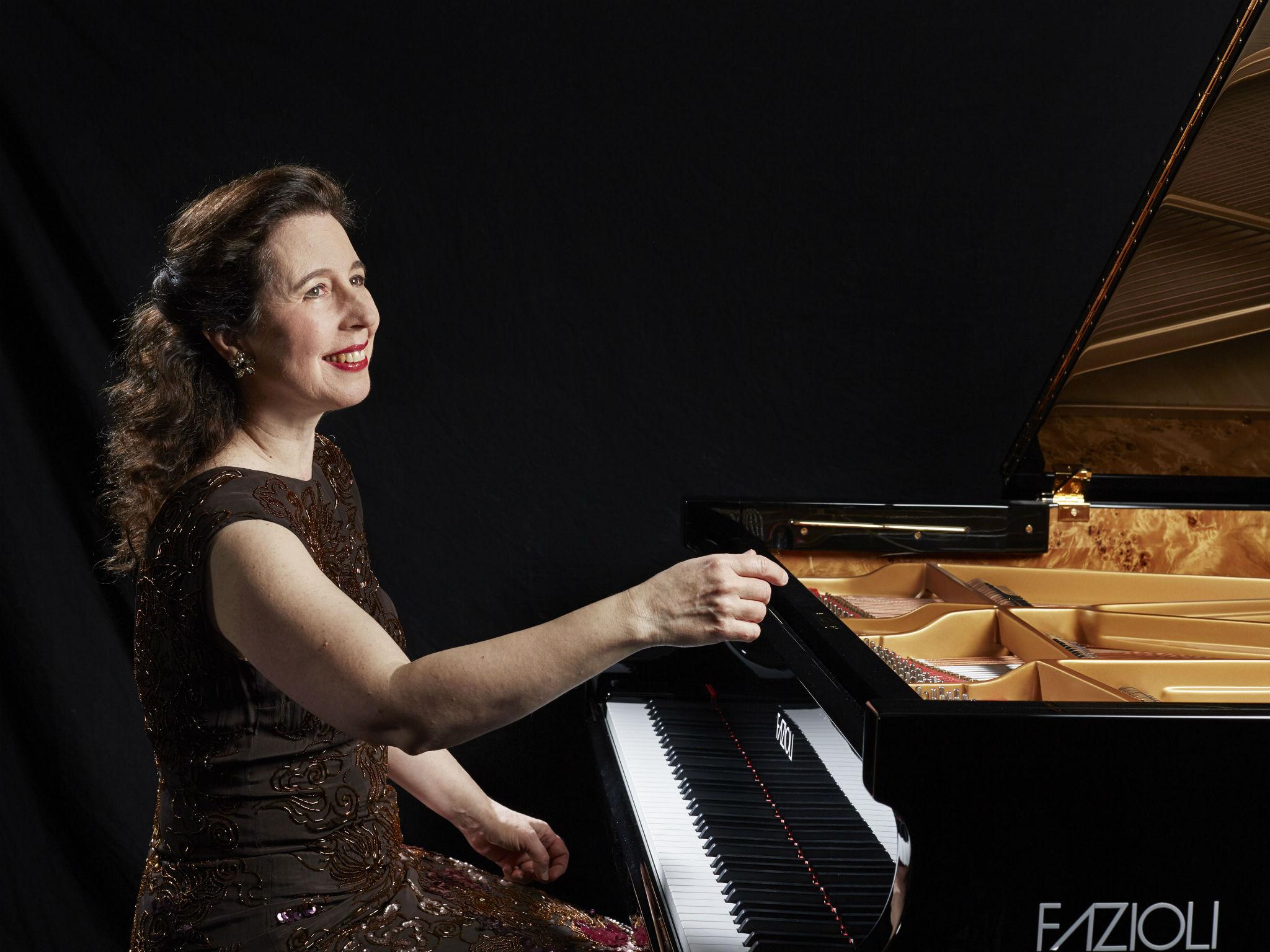Angela Hewitt, Wigmore Hall, London, review: She held the audience in such thrall you could have heard the proverbial pin drop
The pianist continued her Wigmore Hall ‘Bach Odyssey’ with the first book of 24 Preludes and Fugues

There’s something heroic about Angela Hewitt’s Bach. This Canadian pianist has made Bach’s keyboard music the core of her performing life, twice taking it on world tours, first in 2007, and then – as her Bach Odyssey – in the form going on at present.
After the first tour she told her record producer she wanted to record the 96 pieces of the Well-tempered Clavier a second time. He asked why, given the acclaim for her first recording, and arguing that he couldn’t sell a new one. But she said she’d had many second thoughts, and proceeded to demonstrate them in a new recording, which was duly acclaimed as well.
Eight years on, here she was back at the Wigmore with her latest thoughts. But in a wheelchair: this physically sprightly woman had injured her foot in an accident, and didn’t want to disappoint her fans. Easing herself with difficulty onto the piano stool, she went on to give a recital of Bach’s first book of preludes and fugues which held us in such thrall you could have heard the proverbial pin drop.
The first prelude – over which Gounod was later to weave his “Ave Maria” – was here given the most delicate inflection, its volume ebbing and flowing expressively, while the first fugue had symphonic grandeur. As the toccatas, fantasias, and sarabandes unfolded, one could see why this musician’s creativity never sleeps. The drama in these wonderful pieces was now intensified, as were the moments of stillness; the laments had a new monumentality, the virtuosity radiated fury, and the rubato – the varying of the pulse – was sometimes extreme, yet never felt mannered.
Sorry you missed this? Get the Hyperion recording.
Join our commenting forum
Join thought-provoking conversations, follow other Independent readers and see their replies
Comments
Bookmark popover
Removed from bookmarks